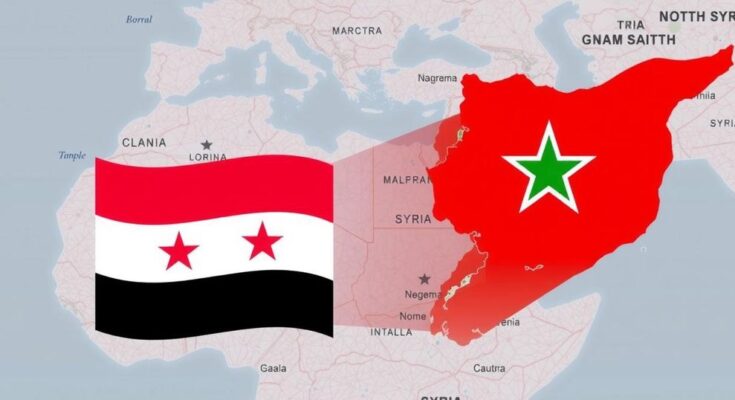The fall of Bashar al-Assad triggers a strategic realignment among Maghreb nations—Algeria moderates its support, Morocco welcomes the regime’s decline, and Tunisia moves towards normalizing relations. These changes arise from historical ties, regional security concerns, and the implications of radicalization.
The recent downfall of Bashar al-Assad has prompted significant shifts in the positions of Maghreb nations, particularly Algeria, Morocco, and Tunisia. These countries, which had previously expressed varying levels of support for Assad against his opposition, are now reassessing their positions amidst the ongoing turmoil in Syria. For instance, while Algeria initially affirmed its backing of Assad, it later articulated a more cautious stance, emphasizing dialogue among Syrian factions instead of foreign intervention.
Meanwhile, Morocco, which has long maintained a hostile stance toward Assad’s government, publicly welcomed the regime’s decline, viewing it as an opportunity for greater stability within Syria. Moroccan officials have reiterated their support for reform and stability in Syria, distancing their position from Algeria’s.
Tunisia’s initial solidarity with Syria mirrored Algeria’s, citing concerns over chaos and fragmentation. However, after recent developments, Tunisia has begun to navigate a path towards normalizing relations with Syria, acknowledging the complexities of the situation as an internal concern for the Syrian people. As these nations respond to the evolving dynamics of the Syrian conflict, common apprehensions about the potential return of radicalized individuals from Syria remain a pressing concern for their national security agencies.
The unfolding crisis in Syria, marked by the rapid downfall of President Bashar al-Assad, has compelled countries in the Maghreb region to reassess their diplomatic stances. Traditionally, many of these nations had supported Assad in the context of pan-Arab solidarity and shared geopolitical interests. However, with the regime’s collapse, Algeria, Morocco, and Tunisia are realigning their foreign policies while addressing internal and regional security concerns stemming from the potential return of radicalized fighters.
In conclusion, the reactions of Algeria, Morocco, and Tunisia to the fall of Bashar al-Assad underscore a significant geopolitical shift in the Maghreb region. While historical ties influence Algeria’s supportive stance towards Syria, Morocco capitalizes on the change to reinforce its opposition to the Assad regime. Tunisia, navigating a middle ground, expresses solidarity while acknowledging the complexity of Syria’s internal strife. These nations share overarching security concerns regarding radicalized individuals potentially returning from Syria, thereby complicating their responses to the evolving situation.
Original Source: www.middleeasteye.net




